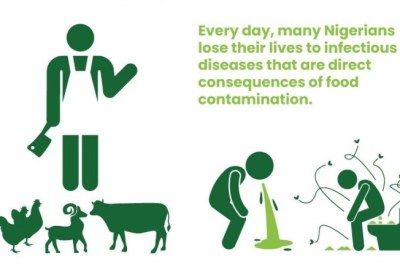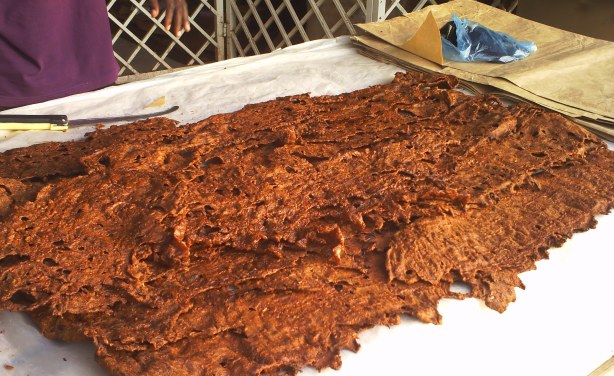-
Nigeria: Have You Heard of Solar-Powered Kilishi? a Climate Adaptation Innovation in Nigeria
World Bank, 21 July 2021
As he pulled on his new blue rubber gloves, Ibrahim Bature reflects on how barely a few months earlier, he was just another young migrant in Abuja, Nigeria's capital city, earning… Read more »
-
Nigeria: Senators Slam RMRDC Boss for Listing Kilishi Technology As Achievement
Daily Trust, 9 June 2020
Members of the Senate Committee on Science and Technology fumed Monday when the Director-General of the Raw Materials Research and Development Council, Prof Hussaini Ibrahim, told… Read more »
Have You Heard of Nigeria's Solar-Powered Kilishi?
Kilishi, a local meat delicacy requiring the use of firewood for its preparation, is becoming unsustainable and less profitable as deforestation progresses and charcoal becomes scarcer.
The solar-powered factory has led to a cut in production time from an average of 3-4 days to 3 hours (at peak sunshine); an increase in production capacity - 1,600 kg of meat (about the amount of beef from 8 cows) can now be processed per day. The same quantity would take 20 Kilishi makers 2 weeks using the traditional sun-drying method. While production was barely sufficient for domestic consumption earlier, Kilishi is now being exported to customers in Kano, Abuja, and Lagos, while other states like Kaduna, Zamfara, and Adamawa have expressed interest in placing orders.
Processing and drying Kilishi in solar-drying domes eliminates the drudgery of doing so in the open air with the constant threat of rain, whirlwinds, flies, and birds contaminating the meat. The improved hygiene and taste of the solar-powered Kilishi have also increased its market value. In addition to conserving firewood, the factory is demonstrating the potential for job creation for youth who would have otherwise migrated to cities in other states.
InFocus
-
The Nigeria Health Watch team visited abattoirs in Suleja and Dei-Dei, to learn how they are managed, listing the public health issues that Nigeria need to consider as it ... Read more »
Video
-
22 November 2017
Different Types of Nigeria's Special Beef Jerky!
- Author:
- BattaBox
- Publisher:
- BattaBox
- Publication Date:
One of the most famous Nigerian foods is kilishi, or dried meat, mostly found in the north and middle of the country - it's delicious and very similar ... see more »



